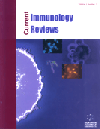-
s Obesity as a Model of Premature Immunosenescence
- Source: Current Immunology Reviews (Discontinued), Volume 8, Issue 1, Feb 2012, p. 63 - 75
-
- 01 Feb 2012
Abstract
With aging the neuroendocrine-immune communication suffers an impairment, which explains the altered homeostasis and the resulting increase of morbidity and mortality. Since the aging process is very heterogeneous, the biological age determines the level of aging experienced by each individual and therefore his/her life expectancy. We have proposed several immune functions as markers of biological age and predictors of longevity, as well as the key involvement of the immune system in the rate of aging modulating oxi-inflamm-aging. This has been confirmed in several murine models of premature aging of neuroimmunomodulation such as poor response to stress, anxiety, depression or loss of estrogens. In the present article we summarize knowledge of the obesity and immune system and suggest that obese subjects, compared to non-obese of the same chronological age, are prematurely aged. Thus, we show some data supporting the hypothesis that obesity is a model of premature immunosenescence.


